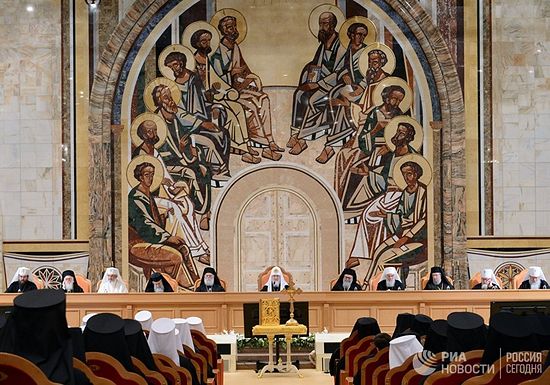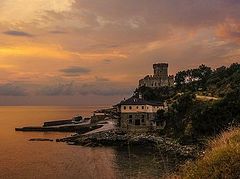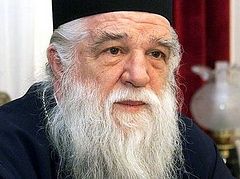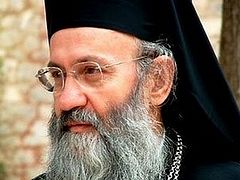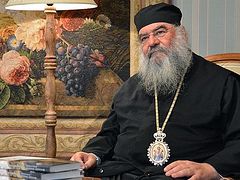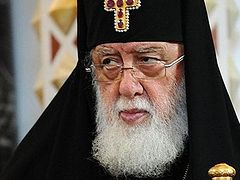Moscow, December 5, 2017
The 2017 meeting of the Council of Bishops of the Russian Orthodox Church, which concluded its work on Saturday, offered its evaluation of the Council of Crete that gathered representatives from 10 of the 15 Local Churches last summer and the documents it released, calling it a significant event in Orthodox history, but not pan-Orthodox, reports the site of the Russian Orthodox Church.
“The Council cannot be considered pan-Orthodox, nor its decisions as obligatory for all the fullness of Orthodoxy, inasmuch as in the absence of the agreement of a number of Local autocephalous Churches on the conducting of the Council by the previously agreed upon terms, the principle of consensus was violated,” the hierarchs write in the Russian council’s final document, “Resolutions of the Sacred Council of Bishops of the Russian Orthodox Church (November 29-December 2, 2017).”
“However, the Council of Crete should be recognized as a significant event in the history of the Orthodox Church,” the bishops continue. As Metropolitan Hilarion (Alfeyev) of Volokolamsk told RIA-Novosti during the Council of Bishops, the Russian Church generally accepts Crete as an important step towards a truly pan-Orthodox council, but that its documents are in need of revisions and clarifications.
The recent council thereby approved the evaluation of Crete that had previously been included in the decision of the Russian Orthodox Holy Synod’s July 15, 2016 meeting.
“Analysis of the documents of the Crete Council … has shown that several of them contain vague and ambiguous wording that does not allow them to be considered exemplary expressions of the truth of the Orthodox faith and of the Tradition of the Church,” the Russian hierarchs’ document continues, adding that this especially applies to the highly-controversial “Relations of the Orthodox Church with the Rest of the Christian World” document, which, as the bishops note, was not signed by 2/3 of the Serbian delegation, as well as individual hierarchs of other Local Orthodox Churches.
His Holiness Patriarch Kirill of Moscow noted the same issue in his presentation on the opening day of the Council of Bishops. Although 17 of 24 Serbian bishops did not sign the above-mentioned document, it was officially adopted by the Council on Crete, including the Serbian Church. “All this raises questions not only about compliance with the pan-Orthodox-approved procedures for the Council of Crete, but about how much the documents adopted by it truly express a genuine consensus in our Orthodox family,” the Russian primate observed.
His Holiness also noted that several other documents from Crete are in need of critical revisions.
The critical attitudes expressed by the Antiochian, Bulgarian, and Georgian Holy Synods, as well as by individual hierarchs of other Synods, and the Sacred Community and individual monasteries of Mt. Athos towards the Crete Council were also noted by the Russian Council of Bishops, stating that there is an ambiguous attitude towards the Council within the Orthodox Christian family.
The document concludes its remarks on Crete by noting that the preservation and strengthening of the unity of the holy Orthodox Church is the shared responsibility of all the Local Churches, regardless of their evaluation of Crete, thus the bishops call for increased inter-Orthodox cooperation.

